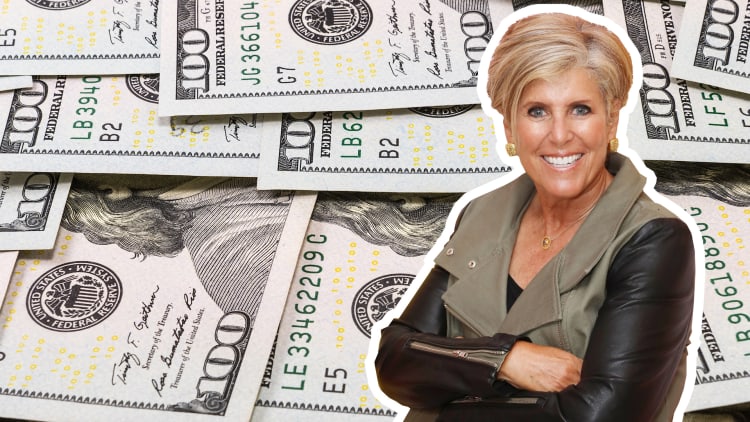Are you on track to have enough money after you retire? Plugging your information into an online savings tool can help give you an idea where you stand — but it can also highlight how far you are from your goal.
"It's very scary to use the retirement calculators that are all over the place," Suze Orman, financial expert and best-selling author of "Women and Money," tells CNBC Make It. "Because when you do that, you see that you're going to need $5 million to retire and all you have is $800,000." Or you may be reminded that you're among the 21 percent of Americans who have nothing at all saved for their golden years.
When that fear sets in, "you become totally hopeless," Orman says. And "when you become hopeless and depressed, that's when you go out and you start to spend money."
So, regardless of how much you currently have in the bank, Orman says don't worry about strictly adhering to the number an online calculator tells you to put away each month.
Instead, focus on "doing the best you can do."
What that means can vary. For some, doing your best means making regular contributions that are matched by your employer: "If your corporation matches your contributions to your retirement accounts, you better be doing that," Orman says, because that's essentially free money.
For others, it means "you better fully be maxing out your Roth IRA" if you have enough left over after covering your necessary expenses.
And, if you own a home, you should also aim to pay down your mortgage as quickly as you can. That's because "you're far better off owning a home outright and getting rid of that mortgage payment than anything else," Orman says.
If you're looking for a more precise guideline, retirement-plan provider Fidelity Investments suggests you have 10 times your final salary in savings if you want to retire by age 67. With that goal in mind, here's how much Fidelity says you should have put away at every age.
- By age 30: Have the equivalent of your starting salary saved
- By age 35: Have two times your salary saved
- By age 40: Have three times your salary saved
- By age 45: Have four times your salary saved
- By age 50: Have six times your salary saved
- By age 55: Have seven times your salary saved
- By age 60: Have eight times your salary saved
- By age 67: Have 10 times your salary saved
To get there, Fidelity recommends saving 15 percent of your annual income. Make sure to invest these funds instead of leaving them in a traditional savings account. "If you only saved money in an account that got no return, you'd have to save a lot more to reach your goal, " Meghan Murphy, a VP at Fidelity, tells CNBC Make It.
However, 15 percent is still more than many Americans can sock away — and that's okay. "It's something to work towards over time," Murphy says. "Always make sure you're getting that company match, then try to increase your savings by 1 percent annually until you reach that 15 percent."
Even if you're only able to contribute $30 per pay period, it's better than nothing. No matter how much you're able to put away each month, the key thing is that you're doing your best to save something for the future.
Like this story? Subscribe to CNBC Make It on YouTube!
Don't miss: The No. 1 thing that Suze Orman wishes you would stop doing with your money




